Dear Planet Waves Subscriber:
This weekend, the Sun is conjunct the newly discovered planet Eris. I know that I mention a lot of newly discovered planets, but Eris (discovered and named between 2003 and 2006) so magnificently qualified as the official ’10th planet’ that its discovery compelled astronomers to shake up their organizational model of the solar system, create a new category, ‘demote’ Pluto and define the word planet for the first time. Technically Eris and Pluto (and Ceres, along with a few others) are now known as drwarf planets.

Amidst the literally hundreds of thousands of bits, bobs and blobs orbiting our Sun, Eris stands tall as a key discovery: a genuine scientific breakthrough. She’s bigger and brighter than Pluto, and is currently (because her orbit is so egg-shaped) the most distant object orbiting our Sun known to science. Given that we’ve only known about Eris, by name and reputation, since late 2006, we have not had much time to make up our minds about what it’s about, though I have some ideas.
How do astrologers develop the meaning of newly discovered bodies? On the simplest level, the name (chosen by the discovery team) evokes a myth. Eris was the goddess of discord and has a positively terrible reputation in Greek mythology as the one who started the Trojan War. Going directly from the mythology to the delineation doesn’t usually work in astrology; looked at one way, the myth has to be understood in a fairly complex way and the elements of the story applied to ‘real life’. Sometimes, though, the mythology carries through pretty well. With Eris my hunch is that it would be wise to take a more circumspect approach.
My take is that Eris, the astrological concept, uses the ‘chaos’, war and discord factor as a personality metaphor. Eris is in Aries for nearly every person on the planet, except for a few folks still around who were born in the early 20th century. Aries is the sign of identity; the sign of “I Am.” One thing you can say about our time in history is that there’s a lot of confusion going around on the ‘who we are’ theme. This is a long-term transit, which will have lasted about 110 years when it finally ends.
The goddess of discord certainly seems to have arrived at a time of rampant chaos on the planet, but I think that most of that chaos is in the psyche; it is internal, on the level of identity, self-awareness and a kind of mental chaos that we live with as if it were normal. One of the discoverers, Chad Trujillo, said that the discovery team agreed that it was the perfect name to give a major discovery at this time in history because the world is in such madness; but he didn’t specify what kind.
Delineating the qualities of this point on the personal level, Eris seems to walk the edge between the personality/identity anarchy we live with now (an Aries factor), and the authentic clarity of one’s existence and mission that’s also accessible when we get done with the game of ‘confusion’ or of not knowing (also an Aries factor).
Astrologers involved in the process use many techniques to get at the delineation of a new discovery, though of course, we must verify our theories with experience. The myth can turn out to be a small, or significant, piece of the story: it depends from body to body. We must also look to the physical properties of a planet itself (such as the length of the orbit); fancy things like the perihelion and planetary nodes; the discovery chart; the time in history of the discovery; specific historical events where the new point shows up in the chart; and perhaps most productively, the lives of people with the new item prominent in their natal charts.
A Unique Case: Rachel Maddow
Considering Eris, I have a spectacular example, my personal favorite so far: Rachel Maddow, who currently broadcasts on MSNBC. Over the past few years, Maddow has made an impressive ascent to prominence from small-town radio host to national news anchor. She’s not only the first openly lesbian top newscaster in American history, she was the first openly lesbian Rhodes scholar. She is an unabashed intellect in an era when that supposedly ain’t the coolest thing to be, she’s wickedly funny and by my standards a brave and free-thinking journalist.

In other words, she stands out; she is a leader in her field; she is a pioneer and an innovator.
Maddow, whose 37th birthday was April 1, has the Sun conjunct Eris. Since she was born at the time of the Chiron-Eris conjunction of the early 1970s, she actually has the Sun conjunct both of those points. Venus is also in the mix, offering a touch of elegance and the kind of intelligence that can only come from a deep connection to goddess energy or at least the feminine principle.
In an earlier article called Eris Notebook: Dancing with Discord, I described the Chiron-Eris conjunction of the early 1970s as the astrology of the feminist watershed. Between May 1971 and December 1972 there were three exact conjunctions of Chiron and Eris in Aries — their first-ever meeting in Aries by the way. There will be one last series in Aries between 2025-2026. These were intense years for many reasons, but the feminist movement was becoming defined as a self-aware entity, running on the awareness power of Chiron and the soul of the feminine quality of Eris.
It is often the case that people born during an era bring in the energy of that time better than the people who were responding or reacting to it at the time. After all, a native of that era has the full-time project of living with that astrology and bringing it into manifestation. If you’re actually alive, your own chart never goes out of style, for you.

Maddow was born in 1973, while the conjunction was still very close, and at that moment joined by the Sun and Venus. To my thinking, nobody embodies what 70s feminism was trying to do better than Maddow.
While I am not the biggest fan of how most 70s-styled women’s lib presented itself, I understand the theme and the principles involved: that women have equivalent potential as men, are entitled to the same rights and privileges, and at the same time are entitled to still be women. I recognize that part of the 70s feminist movement was driven by lesbian separatists, but that was not going to work for the many women who wanted to honor some of their traditionally female roles and honor their bonding with men, while being able to earn the respect normally afforded only to men. As such, Maddow went through the glass ceiling like a boulder being ejected from a volcano.
Nobody endorsed Maddow’s place in society better than Scott Brown, the somewhat infamous 41st Republican senator who now has Ted Kennedy’s old seat. (He was the one who offered one of his daughters as a sacrifice-for-marriage in his acceptance speech.) Recently, Brown tried to frighten his constituents into writing campaign checks by claiming that Maddow was running for the U.S. Senate in Massachusetts, where she lives part time. I can see where that would be really, really scary to some people and I am sure plenty reached for their checkbooks. (Notably, it’s not true. Rachel is way too smart and to my perception, way too honest to be a senator.)
Chiron Activating Eris
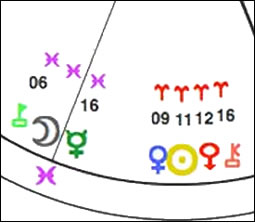
One of my ideas about how Chiron works is that it brings out the nature of what is already there. While Chiron has distinct qualities of its own (strong individuality, a maverick quality, a sense of rejection, and thriving on adversity), it can focus the energy of any planet it contacts, giving it a means of expression.
Unlike many planetary energies, Chiron is highly utilitarian, and thrives when it’s put to productive use, which is pretty much how Maddow describes herself. It’s an excellent planet to have in aspect pattern because it offers contact with the world. Yet this contact is often experienced only if there are personal planets involved: Venus, Mars, Mercury, the Sun or the Moon.
With Venus and the Sun conjunct Chiron and Eris, Maddow clearly qualifies. Then she has a surprise — the asteroid Sappho in a one-degree conjunction to Eris. In theory, Sappho isn’t supposed to have anything to do with lesbians (it’s supposed to be more about platonic love and ‘getting people together’) but here is an example where it shows up in literal form. Historically, Sappho was also the first Western woman whose writing we have fragments of. Most of them are love poems to women.
One thing I have noticed about Eris is the property of the truthteller. Maddow is the rare journalist who is not afraid to tell it like it is. It is true that she has toned down her journalism since her days as a radio broadcaster, but still she is doing an impressive job on a network owned jointly by Microsoft and GE (the parent company of NBC).

Let’s look at some elements of her biography, as revealed in an interview with The Guardian newspaper in the UK, one of the foundation beams of the liberal British press. Doing astrology, it’s good to get a sense of who someone was as a child.
“I was a weird, depressive little kid who never really thought they would get to be an adult. I never thought I’d reach drinking age,” she said. This is an interesting comment, describing an alienation and difficulty envisioning the future: a bit of an existential crisis that could easily be attributed to the Sun combined with Chiron or Eris. The ‘depressive’ piece is illustrated in her Pisces Moon square Saturn, which describes both sensitivity and loneliness.
She had taught herself to read by the time she was four years old, which speaks of all that Aries independence and determination.
Let’s see how The Guardian described her process of coming out as lesbian — as they come, an extraordinary story:
Maddow came out at Stanford, aged 17, six months after she realised she was gay. “I knew there was something. My whole childhood I knew there was something, but I didn’t know it was that.” The only other woman she knew who was gay was the daughter of a Liberian fundamentalist Christian minister. “I thought: if she can do it, so can I.” However, appalled by the casual homophobia she’d encountered on campus, she outed herself by broadcasting the fact on handmade posters which she pinned up in all the bathrooms in the student accommodation in the sure knowledge that by the end of the day everyone would have seen the poster at least once.
“It was confrontational, funny, theatrical. On-my-own-terms aggressive,” she said. The student newspaper covered the incident, and then someone sent a copy of the story to her parents, to whom she had not yet come out. I think here we have an excellent illustration of how her Aries conjunction works. Notably, she is a deeply private person now, but at the time she chose to come out in a public way — a bit reminiscent of the Aries Point: the personal is political. Her coming out process, apropos of Chiron/Eris, was not just a personal statement but also a response to the “casual homophobia” that she experienced.
The story of how she found her career has the opposite sense. Rather than being deliberate, it was more a series of happy accidents which helped her find her special place in the world. The Guardianreported:
It was a friend who persuaded her to go for an audition as the sidekick for a morning show at the local radio station for a dare “and because we thought it might pay more than the minimum wage.” As soon as she was on air, something clicked. “I’d never done anything like it before but I can remember thinking: ‘I like this’.” In the early days the station would make her do stunts like dress up as an inflatable calculator (how this worked on radio I’m not entirely sure). Ten years later she’s being courted by the likes of Vanity Fair and Newsweek. She’s clearly relishing having her own serious platform on which to debate the issues of the day, but the last thing she seems to be interested in is being on television for the sake of it. “I don’t think being on television, in and of itself, has any value. The only reason to be on TV is to say something worthwhile.”
So you mean she’s not in to power for its own sake? Hey wait that’s not how we usually do things here. I have a theory — she’s a visitor from the future, showing us a more evolved version of ourselves.
One of my approaches to astrology is to use people and events to explain astrology concepts, rather than using the astrology to explain people. Searching our chart files, here is who came up with a close Sun-Eris conjunction: James Caan (who played Sonny Corleone in The Godfather), Marcel Marceau (one of the great mimes of the 20th century) and Susan Boyle (the British woman who rose from total obscurity to world fame based on her singing talent about a year ago). And, as you will see in the next article, Joe Francis, another broadcaster of sorts: the founder of Girls Gone Wild.
With Maddow, we have an example of a truly unique woman who has made her way in the world. That story is reflected in her chart in tangible ways, though predominantly we see a chart that describes a self-aware person who feels that it’s her prerogative to actually be who she is rather than someone who she’s told she is. It may take us a while to have a solid feeling for what Eris is about, but we do have some clues. In the form of Rachel Maddow we have an example of someone expressing the energy clearly, authentically and in a way that challenges us to wake up and pay attention.
Yours & truly,
![]()
![]()
Joe Francis, the founder of Girls Gone Wild, was born the same day and year as Rachel Maddow. So the same planetary placements that give us the impeccable, politically savvy broadcast journalist also serve up the guy who sells DVDs of young women flashing their breasts on 4 am infomercials.

How exactly do we explain this? Birth time gives one possibility. So far I haven’t been able to chase down Joe’s exact birth data, though it’s out there looking for me.
But let’s pretend that Aries cluster were to turn up in the 5th house. That could give him Scorpio or Sagittarius rising — freewheeling and out of control, and emphasizing the sexual experience of that cluster rather than the sexual identity quality, or the emphasis on writing bestowed by the 3rd house.
Actually, I would bet that’s how Joe’s chart shakes out. He definitely seems like the 5th house type, with a knack for business, among other things. Joe is notirious for getting arrested, mixing himself up with drunk underage girls, evading taxes, being accused by the cops of bribing cops, alleged violence toward women, farting in court and various other acts of good citizenship.
Joe has an untouchable quality that he is able to push to the max. Heck, he has even survived his Saturn return and most of his Pluto square.
Another way to explain it, skipping the part about the birth time and houses, it is that they do have something in common: they like women. Okay just kidding. What they have in common is that they are performers; they’re extremely independent; and in a certain way, they’re opposites. That’s an important quality in a supposedly dualistic universe; and it reveals that there are many ways to express similar astrology.
Or, you know, it could just be a coincidence.
![]()
It’s intriguing how our brains can compartmentalize memories, stuffing them into folders deep in our subconscious filing system until a smell, a sound, a phrase resurrects them. It seems that no experience is ever deleted in this personal computer we can call mind, quietly waiting to be triggered by an association. I bumped into one of those time capsules this week.

Because life is cyclic, the current level of demagoguery should come as no surprise. We may think we’ve outgrown the kind of xenophobic, ideological fear that grips the loudest members of our citizenry, but we haven’t. This week, a single word triggered childhood memories of a relative’s brief flirtation with the John Birch Society and the McCarthyism that fostered it. The word was “collectivism,” used in a Republican rant about the Tenth Amendment. This amendment reiterates the sovereignty of states’ rights; according to Wikipedia, it “restates the Constitution’s principle of federalism ….” The Tenth Amendment added nothing to the Constitution except reassurance of states’ rights for wary Federalists; it functions as a rarely used deterrent against ‘forced participation.’ That’s why we’re hearing about it now, as Tea Baggers complain that health care reform and a routine census interfere with their rights as citizens. In essence, they’re spitting in the eye of government and growling, “Make me!”
The Tenth Amendment was passed in 1791, prior to any perceived assaults upon states’ rights. We obviously come by our American paranoia honestly. I was born into it. My introduction to politics occurred in 1952 when my after-school cartoons were replaced on the TV screen by the Eisenhower Nominating Convention. I was six years old and disappointed, unaware of Cold War rhetoric that would soon interrupt kiddy programming on a regular basis. A year later, the Senate Permanent Subcommittee on Investigations, featuring Senator Joe McCarthy, began televised Senate hearings investigating Communist activities.
In confrontation after confrontation, McCarthy cajoled, insinuated and insulted those who came before him. He accused the Dems of “twenty years of treason”, and called the American Civil Liberties Union a front for the Communist party. He waved sheets of paper that he said contained names of Communist infiltrators of schools and government, claims that he seldom proved. I still recall the theatrical drone of his voice and the perennial sweat dripping from his moon-face. Years later, I was unable to warm to Nixon as a presidential candidate because he reminded me so much of Joe.
I grew up on mistrust of anything unAmerican. The family gathered to watch I Led Three Lives, a 1954 weekly series about an average businessman who joined the Communist Party as a spy for the F.B.I. All scripts — even the one about vacuum cleaners turned into rocket launchers by Communist agents disguised as housewives — were approved by J. Edgar Hoover. During the McCarthy era of political conformity and loyalty, Commies were perceived everywhere. Suspicion spread like a virus. In ’54 the words “under God” were added to the Pledge of Allegiance as a slap in the face to our godless Cold War enemies. There were book burnings, mandatory loyalty oaths were required even of elementary school children, and McCarthy’s Senate witch hunts were televised. McCarthy was the hero of the fearful, though many of his contemporaries thought him a radical and a drunk. Eisenhower was particularly disdainful of him. McCarthy’s name came to symbolize unsubstantiated accusations and reckless attacks on the character and patriotism of dissenters.
Although McCarthy was eventually discredited, thanks to his televised bullying and the courage of journalist Edward R. Murrow, his legacy never died and lives on in current right-wing hysteria. Joe’s paranoia ploughed the ground in the ’50s for a group called the John Birch Society. Until recently, the Birchers were considered too radical to be invited into the Republican tent, but no longer. Now they’re frequently spotted at Bagger gatherings. In the early ’60s, I read a Bircher tract a relative brought home, thinking it might be useful in my high school American History class. It sounded much like this snip from Wikipedia:
According to (founder) Welch, “both the U.S. and Soviet governments are controlled by the same furtive conspiratorial cabal of internationalists, greedy bankers, and corrupt politicians. If left unexposed, the traitors inside the U.S. government would betray the country’s sovereignty to the United Nations for a collectivist New World Order, managed by a ‘one-world socialist government.'” Welch saw collectivism as the main threat to Western Civilization, and liberals as “secret communist traitors” who provided cover for the gradual process of collectivism, with the ultimate goal of replacing the nations of western civilization with a one-world socialist government. “There are many stages of welfarism, socialism, and collectivism in general,” he wrote, “but Communism is the ultimate state of them all, and they all lead inevitably in that direction.”
“The gradual process of collectivism.” That is the fear that runs like poison through the far-right, exacerbated by the Glenn Becks and the Rush Limbaughs. To that fear, add racism, undeniably at home in the Dixiecratic heart of Republican politics today. This is an old story, older than McCarthy, who used it like a bludgeon. We can trace its roots back to the divide over states’ rights and those who mistrusted a unified Republic.
Fear of collectivism met the ’60s counter-culture head on. In film clips from that period, the voice of the establishment was always a somber man in a coat and tie, hat jammed down on his head. This was the authority figure that could not be challenged if you were a decent citizen and watched Father Knows Best and later, Leave It To Beaver. Yet it was the young vote that ushered in Jack Kennedy and his brief but glamorous Camelot years. It was the hippies who had no fear of collectivism, who rallied for social justice and an end to conscription and unjust war. These were the kids who had stared at the television back in the ’50s, watching Joe McCarthy rant and sweat, missing their cartoons. They changed the world and they can do it again.
In 1954, Edward R. Murrow hosted his weekly episode of See It Now with clips of McCarthy, letting him damn himself much as today’s Jon Stewart skewers politicians with their own words. At the conclusion, Murrow said of McCarthy:
“His primary achievement has been in confusing the public mind, as between the internal and the external threats of Communism. We must not confuse dissent with disloyalty. We must remember always that accusation is not proof and that conviction depends upon evidence and due process of law. We will not walk in fear, one of another. We will not be driven by fear into an age of unreason, if we dig deep in our history and our doctrine, and remember that we are not descended from fearful men.
This all sounds like deja vu, doesn’t it? The Baggers are the latest incarnation of the McCarthyites and the Birchers. Their front men appear on television, exposing their warts and internal demons while their YouTube clips are passed around like political tracts. Like McCarthy’s witch hunts, the revolution is televised. The other day, Glenn Beck showed clips of shabby Eastern European high-rise apartments as an example of socialism. He tied them to similar structures in New York that were a product of welfare programs.
“The Leave It To Beaver House was built by individuals, hard-working Americans,” Beck began. I changed the channel. He’s a right-wing cartoon, and Edward R. Murrow would have made mincemeat out of him. They’ll have to do better than this if they want their antiquated version of America back.
Weekly Horoscope for Friday, April 9, 2010, #811 – BY ERIC FRANCIS
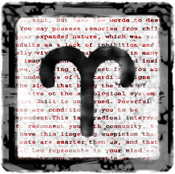 The point is not to be different for its own sake, but rather to recognize that you are a distinct entity, and that is the truth of who you are. Acknowledging this can send plenty of people into a tailspin; for you, ignoring the simple fact that you’re different, that you have something to say and that you have an agenda for your life, are much likelier to cause you to lose your grip on the road. The confusing part is that you don’t necessarily feel like one person all the time; you have so many personas and facets of yourself that you may not be sure which one is true. What is true, initially, is what these facets of self have in common. Beneath the surface level of experience, there is one solid core of existence that you are being invited to tap into right now.
The point is not to be different for its own sake, but rather to recognize that you are a distinct entity, and that is the truth of who you are. Acknowledging this can send plenty of people into a tailspin; for you, ignoring the simple fact that you’re different, that you have something to say and that you have an agenda for your life, are much likelier to cause you to lose your grip on the road. The confusing part is that you don’t necessarily feel like one person all the time; you have so many personas and facets of yourself that you may not be sure which one is true. What is true, initially, is what these facets of self have in common. Beneath the surface level of experience, there is one solid core of existence that you are being invited to tap into right now.
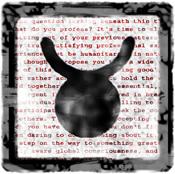 You seem to be running to catch up with some part of yourself that you feel is leaving you behind. The image is of a split between an aspect of your mental focus and the movement of ‘who you really are’. The split is an illusion; you are experiencing bold contrast between who you were in the past and who you are today. By who you were, I mean your state of mind, your mental outlook on life and your sense of identity in the past. Who did you think you were, and when did you decide you were someone different? If you pay attention over the next few weeks, you will be taken through a kind of museum of past self-concepts. Note that this has little to do with who you are today, except for the fact that each of those in turn led to where you are now.
You seem to be running to catch up with some part of yourself that you feel is leaving you behind. The image is of a split between an aspect of your mental focus and the movement of ‘who you really are’. The split is an illusion; you are experiencing bold contrast between who you were in the past and who you are today. By who you were, I mean your state of mind, your mental outlook on life and your sense of identity in the past. Who did you think you were, and when did you decide you were someone different? If you pay attention over the next few weeks, you will be taken through a kind of museum of past self-concepts. Note that this has little to do with who you are today, except for the fact that each of those in turn led to where you are now.
 Your imagination may be running away from you, which is fine if you’re thinking beautiful thoughts or solving problems. It’s a little more difficult if you have anxiety irritating your mind, or if you’re feeling obsessive in any way. Yet any fear or mental duress you now experience are being offered to you as examples for discovering the nature of those feelings. Here is a synopsis: Gemini has a reputation for being this fleeting, quick-changing kind of archetype. Beneath that layer is a slow-vibrating, high-density layer that can be extremely stubborn. Stubborn can be useful, but it can also translate to stuck. The thing we tend to get stuck on are ideas about how life is supposed to be; you have a few of those that you don’t need, and a few old but good ones that you would benefit from remembering.
Your imagination may be running away from you, which is fine if you’re thinking beautiful thoughts or solving problems. It’s a little more difficult if you have anxiety irritating your mind, or if you’re feeling obsessive in any way. Yet any fear or mental duress you now experience are being offered to you as examples for discovering the nature of those feelings. Here is a synopsis: Gemini has a reputation for being this fleeting, quick-changing kind of archetype. Beneath that layer is a slow-vibrating, high-density layer that can be extremely stubborn. Stubborn can be useful, but it can also translate to stuck. The thing we tend to get stuck on are ideas about how life is supposed to be; you have a few of those that you don’t need, and a few old but good ones that you would benefit from remembering.
 Some people are more cooperative than others. Some people you know are more open to the fact that you’re a trailblazer than others. Some are uncooperative because you seem to them like the person who is having all the fun, or who has nothing holding you back. None of this matters. What does matter is that there are people around you who indeed support you; who offer their friendship in deep and substantial ways; who are looking out for your interests. What matters is that you focus on expressing what is truly individualistic and unique about you, and making sure you never forget what that is. Life is not a popularity contest. If it is any kind of a contest, it’s about who can facilitate the most authentic cooperation, which includes supporting authentic cooperation.
Some people are more cooperative than others. Some people you know are more open to the fact that you’re a trailblazer than others. Some are uncooperative because you seem to them like the person who is having all the fun, or who has nothing holding you back. None of this matters. What does matter is that there are people around you who indeed support you; who offer their friendship in deep and substantial ways; who are looking out for your interests. What matters is that you focus on expressing what is truly individualistic and unique about you, and making sure you never forget what that is. Life is not a popularity contest. If it is any kind of a contest, it’s about who can facilitate the most authentic cooperation, which includes supporting authentic cooperation.
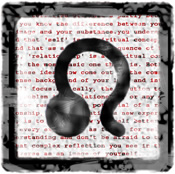 The world has exceedingly few relationship models where both parties profit from a shared arrangement, and many examples of where one party steals from or takes advantage of the other (or a third party, such as kids in the Philippines). For the past few years, you’ve been getting a complex tour of how relationships work and how they do not work; of what factors constitute fairness; of how to make decisions that benefit more than just one party. You’re way ahead of the game here; most people have no idea of what, to you, is a common sense concept. This means you’ll be doing some educating of the people around you, particularly new people that you meet. To them it may seem like you’re proposing that they can walk on water. Explain that it’s more like breathing air — which for most is enough of a challenge to keep them busy.
The world has exceedingly few relationship models where both parties profit from a shared arrangement, and many examples of where one party steals from or takes advantage of the other (or a third party, such as kids in the Philippines). For the past few years, you’ve been getting a complex tour of how relationships work and how they do not work; of what factors constitute fairness; of how to make decisions that benefit more than just one party. You’re way ahead of the game here; most people have no idea of what, to you, is a common sense concept. This means you’ll be doing some educating of the people around you, particularly new people that you meet. To them it may seem like you’re proposing that they can walk on water. Explain that it’s more like breathing air — which for most is enough of a challenge to keep them busy.
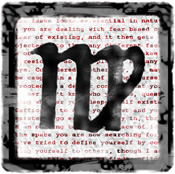 One of the things you wrestle with is having fixed concepts where you need flexible ones. Part of why this is true is because you have extremely flexible concepts where you need some more tangible ones. I cannot tell you what should be what, but I can suggest looking at where you hold firm principles and questioning whether you can use some additional flex, and looking at where you have moving boundaries or work-in-progress theories and asking if you need to get clear with yourself. The potentially confusing bit is that all these concepts fit into the ‘who am I really?’ line of thought, and you may not have distinguished the different shades of that concept. Your charts suggest at least this much: you are carrying around some outdated beliefs; those beliefs are based on outdated values; and those values actually belong to someone else.
One of the things you wrestle with is having fixed concepts where you need flexible ones. Part of why this is true is because you have extremely flexible concepts where you need some more tangible ones. I cannot tell you what should be what, but I can suggest looking at where you hold firm principles and questioning whether you can use some additional flex, and looking at where you have moving boundaries or work-in-progress theories and asking if you need to get clear with yourself. The potentially confusing bit is that all these concepts fit into the ‘who am I really?’ line of thought, and you may not have distinguished the different shades of that concept. Your charts suggest at least this much: you are carrying around some outdated beliefs; those beliefs are based on outdated values; and those values actually belong to someone else.
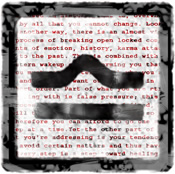 For the next couple of months, some of the pressure you’ve been feeling lightens up: pressure to deal with the past; to address the problems given to you by your parents; to live up to your potential. What you’ve just been through amounts to a practice round of self-actualization. What you experience between now and early June appears to be a reflection process about what you do with impulses to change, no matter what their source. You might start to make distinctions: does change mean grow, or alter your life course, or react, or respond? When is the influence internal, when is it external, and when do the two match up? Pay attention to this last one. You’re going to need your own ideas about how and why you want to grow, to match with a lot of information and influence coming from what seem to be external sources.
For the next couple of months, some of the pressure you’ve been feeling lightens up: pressure to deal with the past; to address the problems given to you by your parents; to live up to your potential. What you’ve just been through amounts to a practice round of self-actualization. What you experience between now and early June appears to be a reflection process about what you do with impulses to change, no matter what their source. You might start to make distinctions: does change mean grow, or alter your life course, or react, or respond? When is the influence internal, when is it external, and when do the two match up? Pay attention to this last one. You’re going to need your own ideas about how and why you want to grow, to match with a lot of information and influence coming from what seem to be external sources.
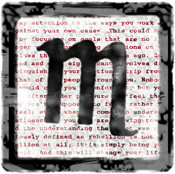 You are making progress in a relationship, though you need to give someone close to you several more opportunities to see things from another point of view. Basically, so far as I can tell, they are involved in an elimination process, deciding what is true on the basis of what they determine is not true. This involves trying on some of the possibilities, and that involves being indecisive. However, you may find that they are committed to different possibilities at different times in ways that seem pretty conclusive. I suggest you assess the situation and see what agreements you require in the long run; size up whether you’re being confronted with things that prove themselves to be deal-breakers. Also, I suggest you set a limit: for example, if someone hasn’t figured their stuff out by the next equinox, that’s too long for you. Be specific with yourself.
You are making progress in a relationship, though you need to give someone close to you several more opportunities to see things from another point of view. Basically, so far as I can tell, they are involved in an elimination process, deciding what is true on the basis of what they determine is not true. This involves trying on some of the possibilities, and that involves being indecisive. However, you may find that they are committed to different possibilities at different times in ways that seem pretty conclusive. I suggest you assess the situation and see what agreements you require in the long run; size up whether you’re being confronted with things that prove themselves to be deal-breakers. Also, I suggest you set a limit: for example, if someone hasn’t figured their stuff out by the next equinox, that’s too long for you. Be specific with yourself.
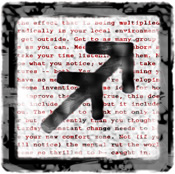 Paul Simon said that food is the bottom line for everyone. This appears to be true for you now. If you live in the United States or the UK, you can be sure that you live in a culture with a lot of food issues, such as: is the food actually food? Is it nourishing? Is it contaminated? What’s in there and why? I recommend taking a couple of weeks of focusing on noticing your dietary habits; your eating habits; on reading the ingredients on every package; and in closely studying what your mother taught you about food. Take up the issue of ‘comfort food’ and see if you can discern why you need it, and it’s actual effect on your mood. See if you can find food substituting for other things in your life. I know this is a lot to consider, but that alone makes an interesting meditation. Food is indeed the bottom line.
Paul Simon said that food is the bottom line for everyone. This appears to be true for you now. If you live in the United States or the UK, you can be sure that you live in a culture with a lot of food issues, such as: is the food actually food? Is it nourishing? Is it contaminated? What’s in there and why? I recommend taking a couple of weeks of focusing on noticing your dietary habits; your eating habits; on reading the ingredients on every package; and in closely studying what your mother taught you about food. Take up the issue of ‘comfort food’ and see if you can discern why you need it, and it’s actual effect on your mood. See if you can find food substituting for other things in your life. I know this is a lot to consider, but that alone makes an interesting meditation. Food is indeed the bottom line.
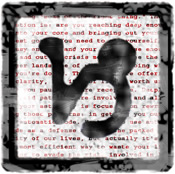 Is there any way to live in a balanced way in our society? Closer to home, is there any way to live a balanced life when you’re under as much pressure to grow as you are now? Here is what I suggest, for the time being: investigate who and what throws you off-balance. Be honest about this. The person may not be present — it may just be their ideas that skew your reality. Your charts have shifted significantly from where they were even last week, and some new factors have entered the picture. The simplest way to say this is that vital influences that were acting behind the scenes are now much more obvious and accessible. Your ‘subconscious’ is suddenly available; emotional dimensions that generally lurk out of reach are right where you can notice and do something about them.
Is there any way to live in a balanced way in our society? Closer to home, is there any way to live a balanced life when you’re under as much pressure to grow as you are now? Here is what I suggest, for the time being: investigate who and what throws you off-balance. Be honest about this. The person may not be present — it may just be their ideas that skew your reality. Your charts have shifted significantly from where they were even last week, and some new factors have entered the picture. The simplest way to say this is that vital influences that were acting behind the scenes are now much more obvious and accessible. Your ‘subconscious’ is suddenly available; emotional dimensions that generally lurk out of reach are right where you can notice and do something about them.
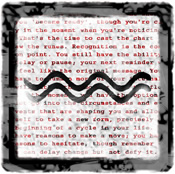 Several influences are summoning you to be more flexible than you’re accustomed to. You are accustomed to the kind of flexibility where you can consider any idea, as an abstraction. Think of this as a symbol. What would it mean to make the symbol into an actuality? In other words, what does the symbol stand for, and what do you feel compelled to do as a result of that actuality? Consider that in the process of determining who you are, noticing that you are the thoughts that you think is a vital step along the way to freedom. You need precision here, which is the precision of honesty. Tell yourself the truth about everything you tend to question or consider in an abstract way. I know we live in a time when ‘there is no truth’ but there is absolutely, certainly your personal truth — and you need to know it.
Several influences are summoning you to be more flexible than you’re accustomed to. You are accustomed to the kind of flexibility where you can consider any idea, as an abstraction. Think of this as a symbol. What would it mean to make the symbol into an actuality? In other words, what does the symbol stand for, and what do you feel compelled to do as a result of that actuality? Consider that in the process of determining who you are, noticing that you are the thoughts that you think is a vital step along the way to freedom. You need precision here, which is the precision of honesty. Tell yourself the truth about everything you tend to question or consider in an abstract way. I know we live in a time when ‘there is no truth’ but there is absolutely, certainly your personal truth — and you need to know it.
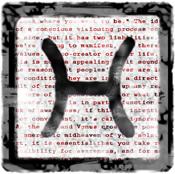 You’re about to make some radical decisions about money, which have everything to do with your sense of self-worth. At this particular phase of your life, you have a better sense of who you are than you’ve ever had before. You’ve met the preliminary requirement for the next step, which is to focus that knowledge into a value that obviates everything that, by logic, must no longer be true. I suggest you use a scientific method more than a philosophical one. If something is true for you today, then it is so on the basis that it invalidates what was true yesterday. The thought of the hour is that you have no room for conflicting belief systems, and indeed exceedingly little room for belief systems at all. What you need is knowledge, and at the moment, much of that knowledge involves being extremely clear about how much your ideas, your time and your labor are worth.
You’re about to make some radical decisions about money, which have everything to do with your sense of self-worth. At this particular phase of your life, you have a better sense of who you are than you’ve ever had before. You’ve met the preliminary requirement for the next step, which is to focus that knowledge into a value that obviates everything that, by logic, must no longer be true. I suggest you use a scientific method more than a philosophical one. If something is true for you today, then it is so on the basis that it invalidates what was true yesterday. The thought of the hour is that you have no room for conflicting belief systems, and indeed exceedingly little room for belief systems at all. What you need is knowledge, and at the moment, much of that knowledge involves being extremely clear about how much your ideas, your time and your labor are worth.



